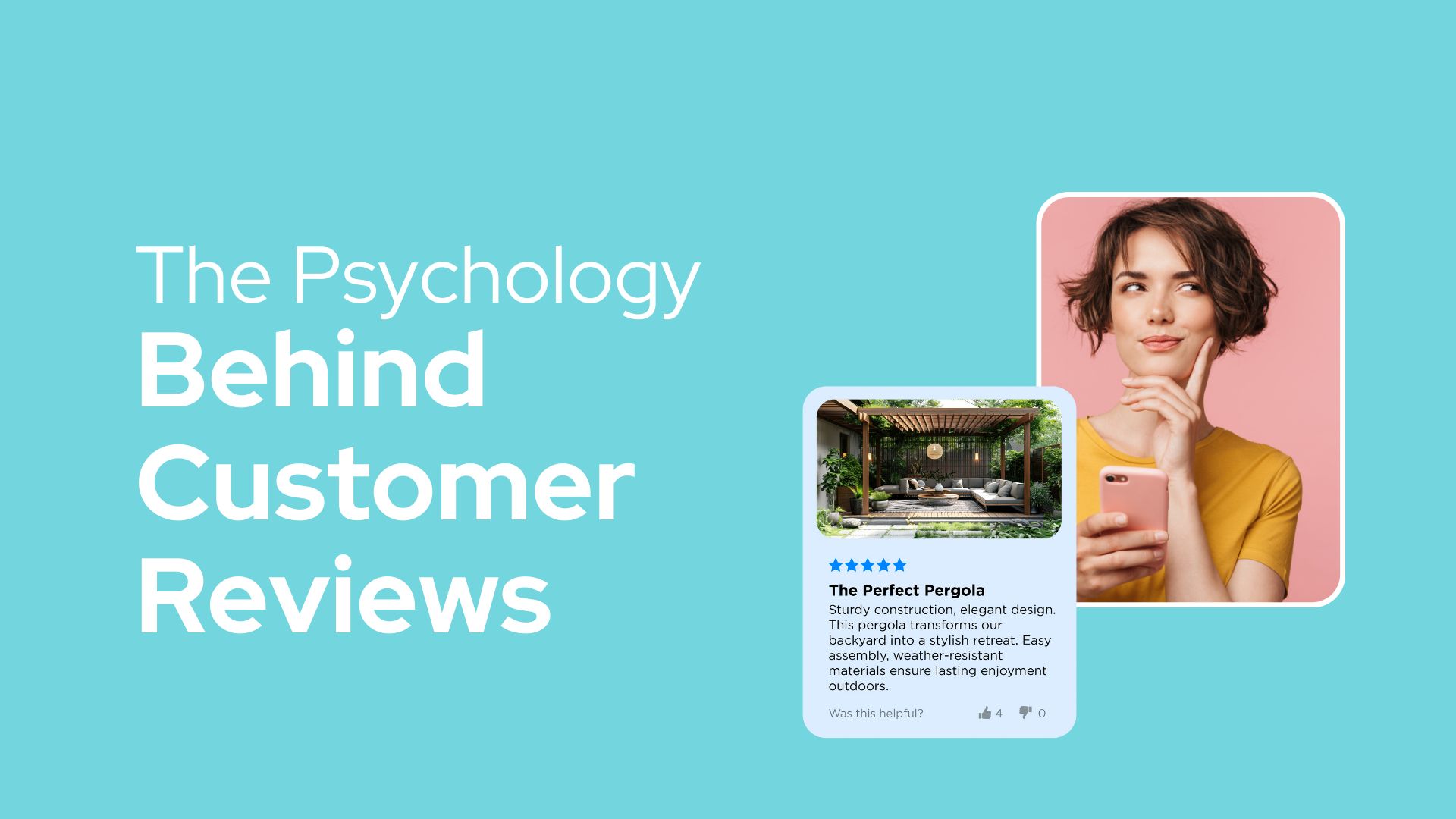Let's talk about reviews on Google.
Google reviews influence customer behavior and company performance. With over 5.6 billion daily searches, Google is the considered the most preferred platform for businesses competing for trust, exposure, and attention. But what really makes Google reviews so effective?
This post will examine why reviews on Google are important and how they can greatly impact your business.
The Importance of Google Reviews

The Power of First Impressions
When potential buyers search for your product or service, they first see your Google listing—and, as well as your reviews. Positive reviews quickly boost trust, while negative feedback may steer potential buyers away. According to BrightLocal, 88% of shoppers believe online reviews are as reliable as personal recommendations.
A strong base of Google reviews helps create the correct tone, enticing more customers to click through and engage with your company.
Building Trust and Credibility
Trust is vital in any business relationship. Customers believe online reviews are as trustworthy as personal recommendations. High ratings and favorable reviews help your company look more dependable, customer-oriented, and trustworthy. Credibility directly impacts customer decisions, increasing conversion rates and enhancing brand loyalty.
Negative feedback, on the other hand, might have the opposite impact. They can destroy trust and influence whether clients interact with or buy from your company.
Boosting SEO and Local Visibility
Google reviews impact both customer impression and your ranking in local search results. Google's algorithm uses user-generated material, such as reviews, to decide how companies rank locally. Positive reviews, including relevant keywords, might improve your visibility when people search for similar topics.
For example, a plumbing company with reviews that include “emergency services" is more likely to apear when customers search for those phrases, giving you an SEO advantage.
Here’s how Google reviews help boost your SEO:
Review Volume: The number of reviews your business accumulates signals to Google that you are an expert and trustworthy, helping to improve your local search ranking.
Review Recency: Fresh reviews show that your business remains relevant and engaged with customers. The more recent your reviews, the more likely you rank in local searches.
Keyword Integration: Reviews that include keywords related to your business or industry can help you rank higher for specific terms.
For instance, if you own a car repair business and customers mention “car repair in [location]" in their reviews, Google might rank your business higher when potential customers search for similar terms.
A Source of Valuable Customer Feedback
Google reviews are useful for attracting new clients and providing a direct channel to learn what you're doing well and where you can improve. Positive reviews validate your company's strengths, while negative criticism provides useful insights for improvement.
Responding to reviews, whether favorable or not, demonstrates that you value customers' input and are devoted to improvement.
The Impact of Positive and Negative Reviews

Positive Reviews: A Business Growth Engine
Positive reviews help you:
Increase Revenue: A Harvard Business Review study found that improving a business’s rating by just one star can boost revenue by 5-9%.
Attract New Customers: Positive testimonials serve as endorsements, making it easier to acquire new clients.
Build Brand Loyalty: Satisfied customers who leave positive reviews often become repeat buyers and vocal advocates of your brand.
On the other hand, negative reviews can:
Damage Reputation: Bad reviews can dramatically harm your brand's image.
Destroy Trust: Negative feedback, especially including consistent issues, can lead to lost customers.
Highlight Areas for Improvement: While harmful, negative reviews also provide insight into operational inefficiencies that you can fix.
Negative Reviews: A Double-Edged Sword
Negative reviews, on the other hand, can be detrimental if not managed correctly. Here are some potential impacts:
Reputation Damage: A string of negative reviews can tarnish your brand’s reputation, potentially causing customers to avoid your business.
Trust Erosion: Even with numerous positive reviews, a few negative ones can erode consumer trust, especially if they highlight consistent issues like poor service or product quality.
Revenue Decline: A Harvard study also showed that a one-star decrease in a review rating could lead to a 5% drop in revenue. Negative reviews may discourage customers from purchasing or returning for future services.
Operational Insight: On the flip side, negative reviews can highlight operational inefficiencies or customer pain points, allowing you to improve and turn things around.
Managing Google Reviews: Best Practices

Responding to Reviews: Timely and Professional
Effective review management involves promptly responding to both positive and negative reviews. By doing so, it proves that you value customer feedback and demonstrate to future customers that you are proactive and care about their experience.
Timely Responses: Aim to respond to reviews as soon as possible, ideally within 24-48 hours. This shows that you're attentive and value customer feedback.
Professionalism: Always maintain a polite and professional tone, especially when addressing negative feedback. You must have a well-crafted response since it can minimize the damage from a negative review. It may even lead the customer to change their opinion.
Personalization: Personalize your responses. Refer to the customer by name and address their specific points of concern to show that you’ve taken the time to read and understand their review.
Encouraging Positive Reviews: A Deliberate Strategy
The best way to get positive reviews is to ask. Satisfied customers are often willing to share their positive experiences, especially if it’s made easy for them.
Here’s how to encourage more reviews:
Request Reviews: After a successful transaction or service, politely ask your customers to leave a review. You can do this through follow-up emails, thank-you notes, or directly in person.
Simplify the Process: Provide a direct link to your Google review page on your website, social media, or follow-up communications.
Offer Incentives: Consider offering a small incentive such as a discount on future services in exchange for a review—just ensure you follow Google's guidelines to avoid violations.
Handling Negative Reviews: Turn Criticism into Opportunity
Negative reviews are inevitable, yet they don't have to spell disaster. Here are some tips on how to handle them effectively:
Acknowledge the Issue: Start by thanking the customer for their feedback and acknowledging their concerns. This simple step can de-escalate tension.
Offer a Solution: Let the customer know how you plan to resolve the issue. This reassures other customers that you take feedback seriously and are committed to improving.
Follow-Up: Once the issue is resolved, follow up with the customer to ensure their satisfaction. This approach can sometimes lead to the customer updating their review or leaving a more positive one.
Leveraging Google Reviews for Business Growth

Displaying Reviews as Social Proof
One of the easiest ways to leverage Google reviews is to showcase them across your marketing channels. Highlight glowing reviews on your website, ads, and social media. This builds social proof, showing potential customers that your business is trusted and acknowledged by real people.
Analyze and Learn from Reviews
Regularly analyze the feedback in your reviews to identify trends and patterns. Whether it's recurring praise for a particular product or complaints about a product or service, these insights can guide future improvements and assist in your business strategy.
Conclusion
Reviews on Google are a powerful asset in the today's digital market, serving as a form of social proof and a key factor in online visibility. Understanding and leveraging their importance can lead to significant benefits, from enhanced trust and increased visibility to business growth and higher revenue. By effectively managing your Google reviews and focusing on improving your customer experience, you’ll be better equipped to thrive in the competitive digital marketplace.
Ultimately, taking control of your online reputation through reviews isn’t just about managing feedback—it’s about driving long-term success for your business.









